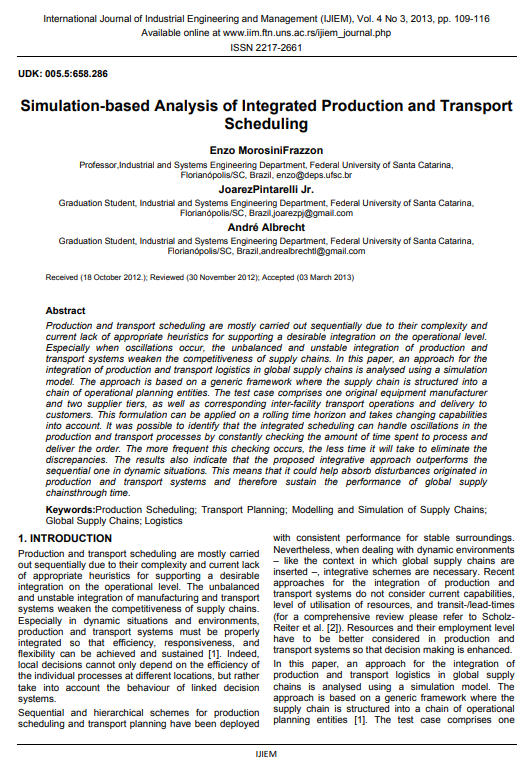
Published 2013-09-30
abstract views: 26 // FULL TEXT ARTICLE (PDF): 0
Keywords
- Production Scheduling,
- Transport Planning,
- Modelling and Simulation of Supply Chains,
- Global Supply Chains,
- Logistics
How to Cite
Copyright (c) 2023 International Journal of Industrial Engineering and Management

This work is licensed under a Creative Commons Attribution 4.0 International License.
Abstract
Production and transport scheduling are mostly carried out sequentially due to their complexity and current lack of appropriate heuristics for supporting a desirable integration on the operational level. Especially when oscillations occur, the unbalanced and unstable integration of production and transport systems weaken the competitiveness of supply chains. In this paper, an approach for the integration of production and transport logistics in global supply chains is analysed using a simulation model. The approach is based on a generic framework where the supply chain is structured into a chain of operational planning entities. The test case comprises one original equipment manufacturer and two supplier tiers, as well as corresponding inter-facility transport operations and delivery to customers. This formulation can be applied on a rolling time horizon and takes changing capabilities into account. It was possible to identify that the integrated scheduling can handle oscillations in the production and transport processes by constantly checking the amount of time spent to process and deliver the order. The more frequent this checking occurs, the less time it will take to eliminate the discrepancies. The results also indicate that the proposed integrative approach outperforms the sequential one in dynamic situations. This means that it could help absorb disturbances originated in production and transport systems and therefore sustain the performance of global supply chainsthrough time.
Article history: Received (18 October 2012.); Reviewed (30 November 2012); Accepted (03 March 2013)

